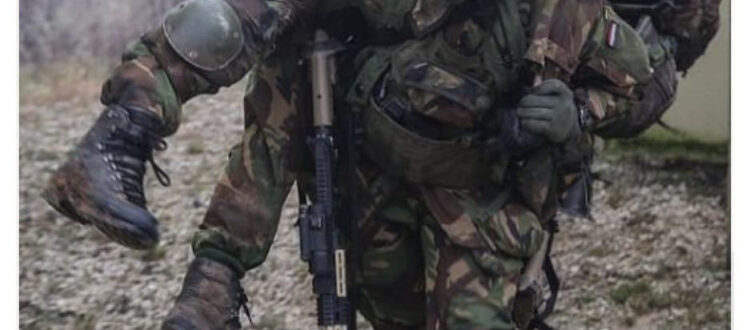Parshat Ki Tavo: He Ain’t Heavy – He’s My Brother
This week’s Torah reading continues the speech that Moshe delivered to the Israelites before he passed on. We are pretty much at the end of that lengthy discourse. This week we read of a very dramatic event that will take place as soon as the Jewish people enter into the Land of Israel: Half the nation will stand on one mountain, the other half on another and in the valley between them will be the Aron HaKodesh – the Ark of the Covenant, the Elders, the Priests and the tribe of Levi. A series of 12 Blessing and Curses are to be pronounced to which the nation will acknowledge each by answering “Amen” in unison.
The commentaries look for a common thread to the pronouncements. They include people who create idols in secret, one who moves the boundary of a neighbour, thereby stealing his property. Giving bad advice to someone who doesn’t know better, thus “causing the blind to go astray” and one who takes advantage of the weak such as an orphan or widow. They note that these curses are related to transgressions that could be done secretly. One might think that they could get away with doing the sin without anyone knowing about it. This public ceremony is to dispel that notion and it is done in such a theatrical way to show that nothing is ultimately concealed from God who sees all, and may very well be visible to your neighbor as well.
This event is connected to the beginning of next week’s Torah portion where Moshe adds a new wrinkle into the covenant between God and Israel. And that is the covenant within the Jewish people itself which emphasizes that we are all connected to and responsible for one another.
Being there for each other was very easy to accomplish when they were travelling for 40 years in the desert in the confined setting of the desert. But now that they are about to all go their separate and tribal ways once they settle the Land of Israel, this becomes a whole new challenge. Hence Moshe drives the point home that each Jew must care for and be concerned about his or her brothers and sisters. They formally seal the contract of ערבות Arvut whereby each and every Jew acts as a guarantor to one another. I am responsible for you and if you fail in any respect, I will be there to pick up the slack, and you will do the same for me.
Indeed this has been one of the hallmarks of our nation throughout the ages. If part of the Jewish community of France or Israel or anywhere in the world is in danger, if one Jew suffers an anti-Semitic or terrorist attack, we all feel it and rush to aid in any way that we can. It is something deeply embedded into the soul and psyche of our nation and has been for thousands of years. It is the complete opposite of the sentiment shared by Cain who murdered his brother and when confronted by God about it answered, “Am I my brother’s keeper?” To that question, we Jewish people have resoundingly and loudly answered, “Yes, I am my brother’s keeper! I have been and I always will be.”
On the other end of the spectrum, and still subscribing in a sad and tragic way to the philosophy of Cain, are many in the Arab world who seem not to give a damn about their brothers. While they claim to be concerned for the Palestinians, their silence about other, larger human tragedies in the region and among their co-religionists exposes their hypocrisy.
“Over 380,000 people were killed since the war in Syria started nine years ago” war monitor Syrian Observatory for Human Rights said on January 4, 2020. As of 2022, there are 6.2 million internally displaced persons in Syria according to United Nations High Commissioner for Refugees.
We don’t hear that much anymore about the Syrian crises. Why didn’t the Arab world rush to their aid? Why have they not taken up their cause the way they have with the Palestinian one? The Arab nations have been advocating for the Palys for close to 75 years. How come they so quickly forgot about the Syrians? It has been a mere decade yet Syria is not on the pages of the media nor heard about in the halls of the UN.
It has been pointed out that with the creation of the State of Israel, about the same number of Jews became refugees from Arab nations as Palestinians did from Israel. Yet there is no Jewish refugee issue and there never was one. Yet somehow there still remains a Palestinian refugee crisis, perpetually for over seven decades.
Why? Because thousands of years ago Moshe made us promise we would look out for one another. That we would take care of each other. That we are guarantors for one another. A shame that much of the world refuses to take note of the example of the Jewish nation and how we come to the aid of our brothers and sisters. Once again we Jewish people could have been a Light Unto Nations and set a standard for others. We could have been, but in the case of the Arab world and their enablers, their hatred too often blinds them from seeing that Light. Maybe one day they will.
His welfare is my concern
No burden is he to bear
We’ll get there
For I know
He would not encumber me
He ain’t heavy, He’s my brother
-The Hollies

